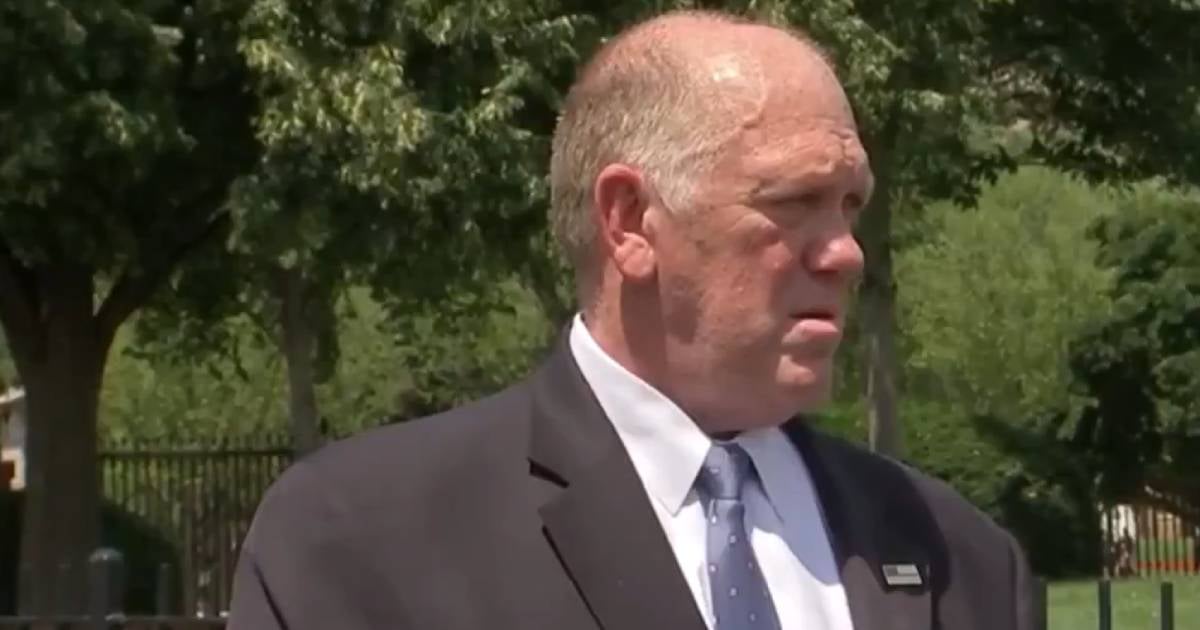The death of 75-year-old Cuban national Isidro Pérez while in the custody of U.S. Immigration and Customs Enforcement (ICE) in Florida has left the circumstances surrounding his passing largely unexplained. However, what has particularly fueled outrage within the Cuban community both on and off the island is not just the loss of life, but the response from Tom Homan, the Trump administration's border chief.
In a statement that many found callous, Homan remarked, "People die in ICE custody," when questioned by a journalist about the incident. He added, "People die in county jails and state prisons." Rather than expressing sympathy or taking responsibility, Homan pointed to the agency's protocols, claiming, "We have the highest detention standards in the sector." He even suggested that ICE facilities should be favorably compared to state or federal prisons, urging reporters to check the official website for confirmation.
"The question should be how many lives ICE saves, because when we detain them, we find many with diseases and issues that we immediately address to prevent," Homan continued. "I am not familiar with this specific case, but I will say this: You can argue with me all you want, but facts are facts."
Community Outrage and Social Media Backlash
The reaction was swift. According to Latin Times, hundreds of social media users condemned Homan's remarks as "cold," "inhumane," and a clear demonstration of disregard for immigrant lives. One outraged user questioned, "What the hell does he mean by 'people die in ICE custody'? That's not an excuse; it's a blatant admission of failure." Another added, "A 75-year-old man who lived here for six decades dies under your watch, and your response is to dismiss it?"
One critic was even more direct: "His death is your responsibility, Mr. Homan. Trying to act tough, and it's not the first time."
Details Surrounding Pérez's Detention and Health
Isidro Pérez's death occurred on a Thursday at HCA Kendall Hospital in Florida, confirmed by ICE in a brief statement asserting that the agency provides "safe, secure, and humane environments" for those in custody. According to the statement, all detainees undergo a medical assessment within the first 12 hours of admission and have access to 24-hour emergency care. Yet, this seemingly comprehensive protocol did not prevent the death of a man who had lived in the United States for over 50 years.
Pérez's former partner, María Adánez, told Telemundo 51 that he was sleeping on the floor in freezing conditions without timely medical attention. "They call this the freezer, I haven't seen a doctor because there are too many of us here," Pérez told her during a phone call.
Pérez's Background and Legal Challenges
Pérez was apprehended on June 5 while attempting to pick up food along the coast of Key Largo, where he resided on a boat. Having arrived in the U.S. at 16, he had never regularized his immigration status despite nearly six decades in the country. As a result, ICE deemed him an "inadmissible migrant."
During detention, Pérez was diagnosed with severe medical issues. He was admitted to Larkin Hospital on June 17 for unstable angina but was discharged a week later. The following day, experiencing severe chest pain, he was taken to Kendall Hospital, where he passed away on the night of June 26.
His sister believes the stress of potential deportation to Cuba was a major factor. "That's why I think he had a heart attack because he no longer knows where we are from," she explained.
Adánez lamented, "I'm not saying they shouldn't punish, but there must be humanity too. All they are causing is pain, pain, and more pain."
Though Pérez had a complicated legal past—with ICE citing a 1980s conviction for possession of controlled substances—his family and friends argue this does not erase his life story or humanity. "If he did, he hid it very well," said his former partner, surprised by the revelation.
The story of Isidro Pérez is not isolated. Numerous reports and allegations highlight the poor conditions in ICE detention centers, and the death of migrants in custody is not uncommon.
Key Questions About ICE Custody and Migrant Safety
What are the conditions like in ICE detention centers?
Reports suggest that conditions in ICE detention centers are often poor, with inadequate medical care and harsh living environments. Allegations of neglect and mistreatment are common, raising concerns about the safety and well-being of detainees.
How does ICE respond to deaths in custody?
ICE typically issues brief statements following deaths in custody, emphasizing their commitment to safety and humane treatment. However, the agency often faces criticism for a lack of transparency and accountability in such cases.
What medical care do ICE detainees receive?
According to ICE, all detainees undergo a medical evaluation within the first 12 hours of admission and have access to 24-hour emergency care. However, many claim that this care is insufficient and not timely enough to address serious health issues.
